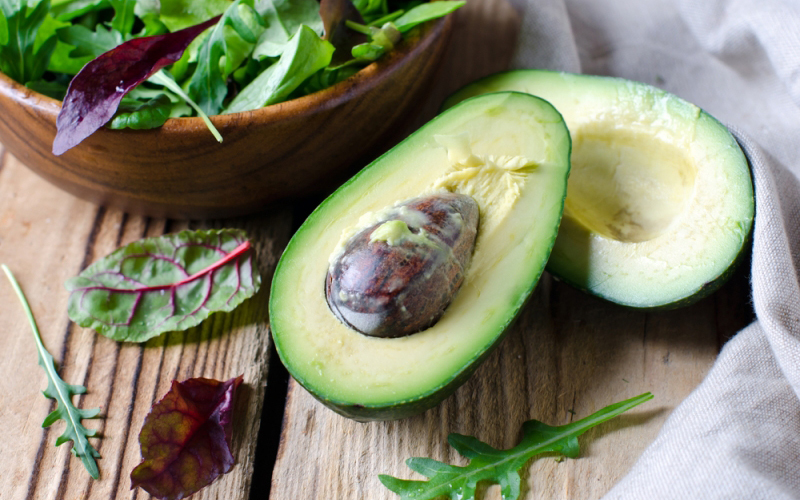Could Dopamine Be the Key to Health and Happiness?

Ah, the joy of being both happy and healthy. I can bet my last dollar that many reading this would like to find the magic solution to what is for many, a far-reaching statement. While many Paleo followers can ride high on the claim of being healthy, the same cannot be said for many about being happy.
Intellectual scholars have been debating the key to happiness. Research studies found that certain neurotransmitters in the brain, such as dopamine, are key to your happiness.1 While this may sound familiar, understanding the nature in which the brain’s reward center functions will help in processing this information. A recent study conducted in London and published in the Journal of Neuroscience expands on the role dopamine plays in happiness, as well as in the risks we take.2
Overview
In this study, 30 healthy people were given the drug levodopa, which is a treatment for Parkinson’s Disease. Levodopa (L-dopa) functions by increasing the amount of dopamine levels in the brain.3 Happiness was measured using functional MRI imagining, to show signals in the area of the brain known as the striatum. This region has substantial dopaminergic input, as a result of increased dopamine receptors.
The individuals were assigned a gambling task, where they had to make choices between safe and risky options. After each choice they were assessed on their level of happiness. In this double-blind placebo-controlled study, the individuals received both levodopa and placebo. When the individuals were given a placebo, the level of happiness was higher after receiving large rewards. On the other hand, when given levodopa, the individuals exhibited high levels of happiness regardless of the type of reward, whether small or large.
Understanding dopamine
Dopamine is a natural chemical produced in the areas of the brain known as the substantia nigra and the ventral tegmental.4 Dopamine not only affects the brain’s reward center, but when you walk and talk, it is the proper balance of dopamine levels in your brain that also controls these functions. An imbalance of dopamine can result in disorders where, for example, patients with the neurological disorder Parkinson’s Disease do not have enough, meanwhile scientists hypothesize excess dopamine can cause schizophrenia.5 Research has also shown an association between drugs that increase dopamine and addictive behaviors like an increased appetite for food and alcohol.2
Pleasure controls
Research shows that the presence of dopamine during an imagined event affects the brain’s expectation of how enjoyable that event will be in the future.5 In other words, make sure your dopamine levels are in check when you’re planning your next workout or healthy meal. You’ll be pumped for the fun ahead!
Paleo foods to boost dopamine production
Interestingly enough, research has also shown there are decreased dopamine receptors in overweight individuals.6 Paleo followers can attest that many who adopt a Paleo diet not only see the pounds fall away, but the robust volume of scientific literature also shows how it decreases the risk for the many chronic diseases that plague western civilizations.
There are foods that help in naturally increasing dopamine levels in our brain. Dopamine comes from the amino acid tyrosine. Foods rich in tyrosine include avocados and almonds.7 These foods also contain high levels of antioxidants, are great sources of natural fat, and are no stranger to Paleo dieters. Other foods include eggs, pork, fish, nuts and seeds.8 Just when you thought you knew all the benefits of eating Paleo!
Summary
When you eat right, you win. Stick to Paleo foods rich in tyrosine, lead an active lifestyle, and keep your happiness and health in check. Keep the brain active by solving puzzles, painting, or crafting; all shown to increase dopamine levels.9 While there is no magic solution, there is a scientific backing which works.
References
[1] Cloud, J. (2009, November 27). Can Dopamine Make Your Future Look Brighter? Retrieved September 15, 2015, from Time: //content.time.com/time/health/article/0,8599,1943224,00.html
[2] Rutledge, R., Skandali, N., Dayan, P., & Dolan, R. (2015). Dopaminergic modulation of decision making and subjective well-being. Journal of Neuroscience, 35, 9811-9822.
[3] Mayo Clinic. (2015). Retrieved Sep 15, 2015, from Carbidopa, Entacapone, And Levodopa (Oral Route): //mayoclinic.org/drugs-supplements/carbidopa-entacapone-andl-levodopa-oral-route/before-using/drg-20061604
[4] Rutledge, R., Skandali, N., Dayan, P., & Dolan, R. (2015). Dopaminergic modulation of decision making and subjective well-being. Journal of Neuroscience, 35, 9811-9822.
[5] Cloud, J. (2009, November 27). Can Dopamine Make Your Future Look Brighter? Retrieved September 15, 2015, from Time: //content.time.com/time/health/article/0,8599,1943224,00.html
[6] DOE/Brookhaven National Laboratory. (2007). Retrieved September 15, 2015, from ScienceDaily: //sciencedaily.com/releases/2007/10/071025091036.htm
[7] University of Maryland Medical Center. (2013, July 16). Tyrosine. Retrieved September 15, 2015, from https://umm.edu/health/medical/altmed/supplement/tyrosine
[9] Wilson, J. (2015, January 5). This is your brain on crafting. Retrieved September 15, 2015, from CNN: //www.cnn.com/2014/03/25/health/brain-crafting-benefits/
O. H. Okoye, MD, MBA, MSEpi
Dr. Obianuju Helen Okoye is a US Health Care Consultant.
More About The Author



